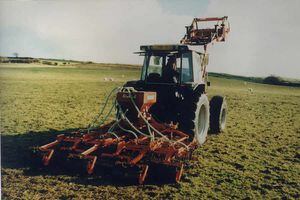Farmers warned of new twist on old scam
Farmers across Staffordshire and the West Midlands are being urged to be cautious after it was revealed criminals are targeting them in a scam over Single Payments Scheme payments.

The agricultural subsidy payments are made at this time each year and criminals have been collating publicly available information on payments, then called farmers posing as bank workers or the police and persuading them to hand over bank details.
Unions say that hundreds of thousands of pounds have been taken over the past two years.
Bosses have urged farm businesses are being warned to remain extra vigilant as the payments start to arrive.
The National Farmers Union said information relating to who receives payments is publicly available and includes the amount paid.
NFU spokesman Oliver Cartwright said: "Members should look out for fraudsters calling and claiming to represent their bank or the police.
"Normally the criminals will claim that fraud has been detected on the farmer's business or personal account and that immediate action is required to remedy the situation.
"The victim is then convinced to hand over bank account details in order to transfer funds into a 'safe account' which is actually controlled by the fraudster.
"Once the money is transferred, it is often very difficult to recover as funds are then quickly moved into other accounts."
The banks and the Financial Fraud Action UK have advised there are a number of simple rules that can be followed to reduce the chances of becoming a victim.
He said farmers should be wary of unsolicited approaches by phone and cold callers who suggest they hang up the phone and call them back – fraudsters can keep a victim's phone line open by not putting down the receiver at their end.
They are being urged that if they sense something is suspicious or feel vulnerable, they should hang up, wait five minutes to clear the line, or where possible use a different phone line, then call their bank or card issuer to report the fraud.
Mr Cartwright said: "Criminals may already have basic information about an intended victim in their possession – for example name, address, account details – so they should not assume a caller is genuine because they have these details, or because they claim to represent a legitimate organisation."
Any farmer who is concerned or suspicious should contact their bank in the first instance. More information on fraud prevention can be obtained from Financial Fraud Action UK. Further information is also available at www.nfuonline.com on the NFU website.





